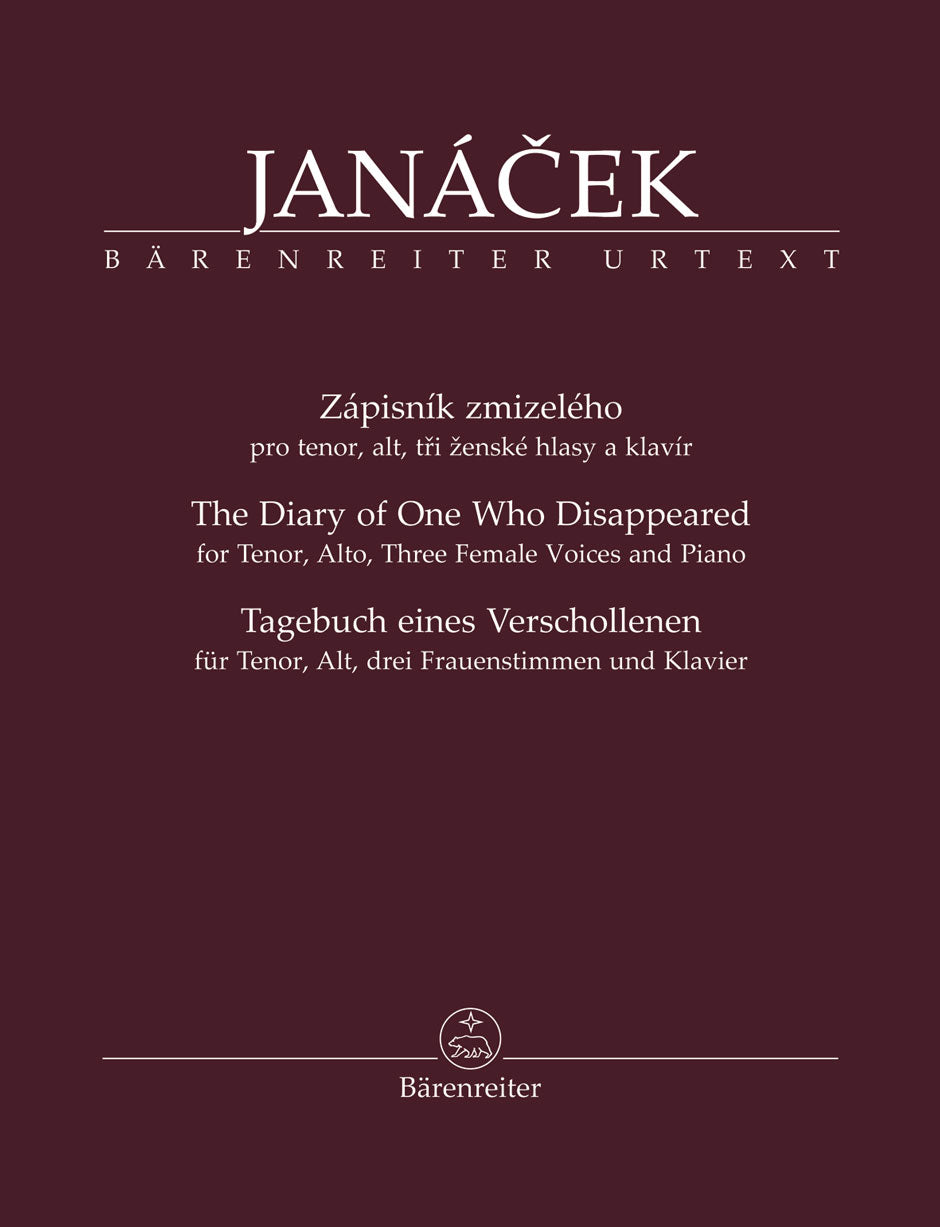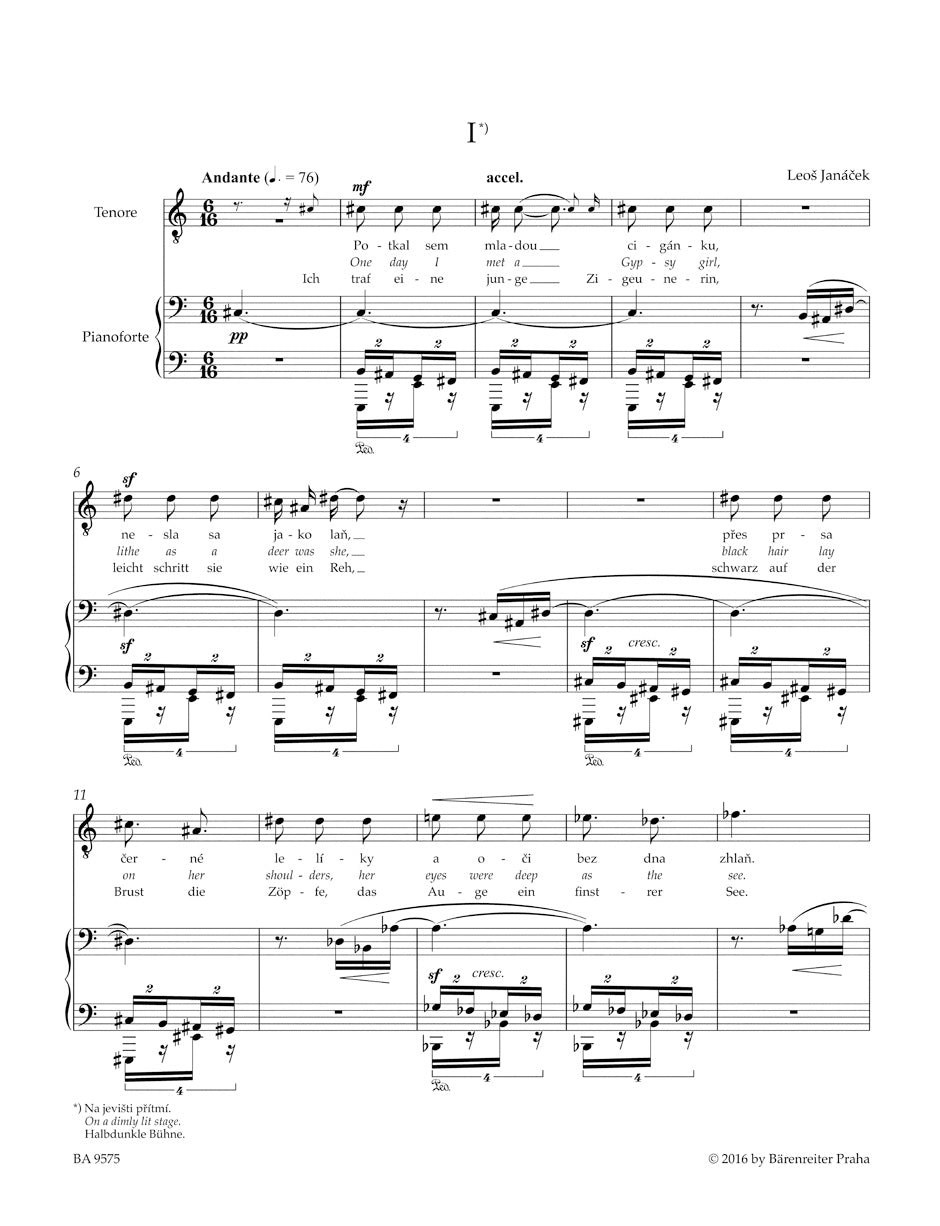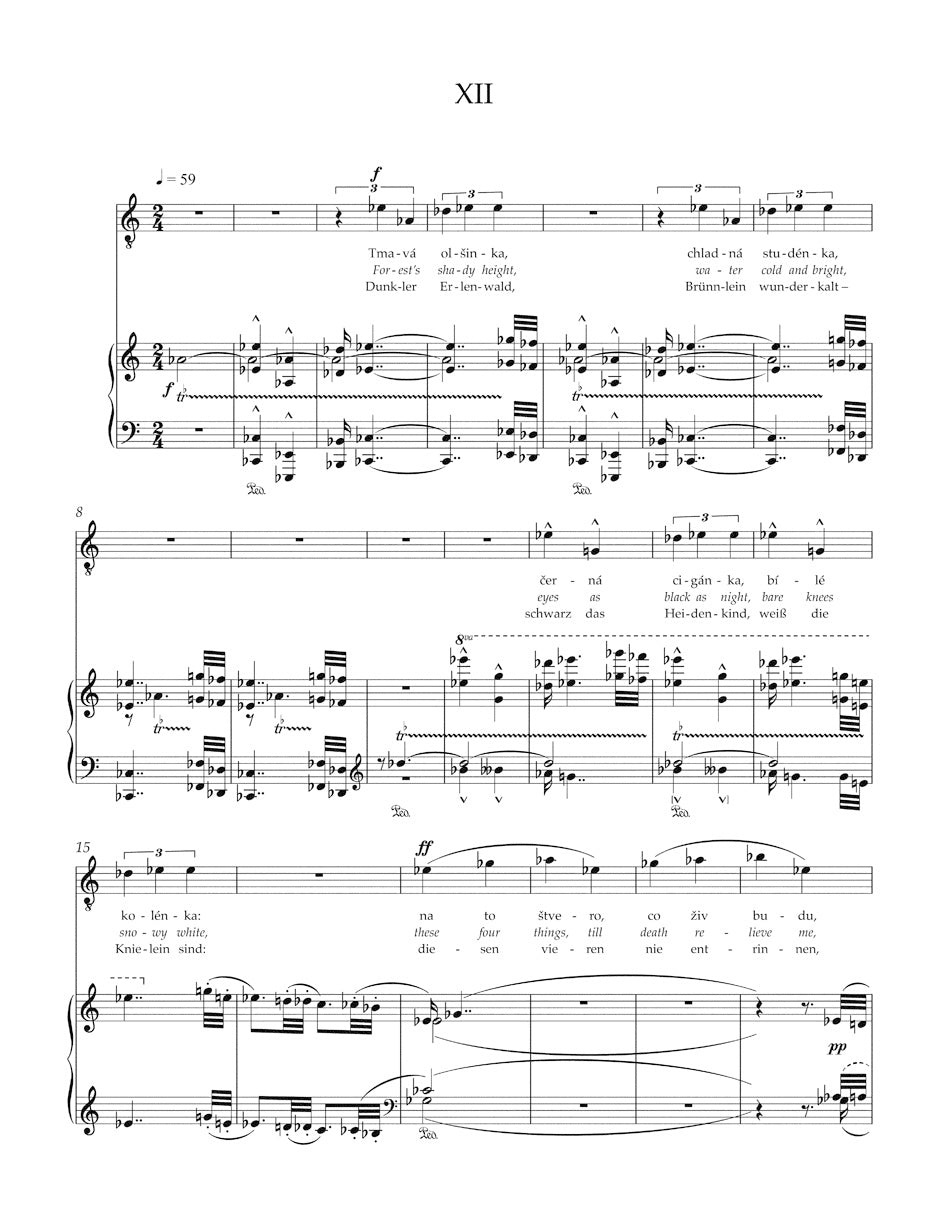


BARENREITER - 345062
Janácek Zapisnik zmizeleho (The Diary of One Who Disappeared / Tagebuch eines Verschollenen) for Tenor, Alto, three Female Voices and Piano
Composer: Leos Janacek
Publisher: Bärenreiter
Instrumentation: Voice
Binding: Paperback
Dimensions: 11.8 in x 9.1 in
Pages: 70
Janácek Zapisnik zmizeleho (The Diary of One Who Disappeared / Tagebuch eines Verschollenen) for Tenor, Alto, three Female Voices and Piano
Juilliard Store
144 West 66th Street
New York NY 10023
United States
Choose options

Janácek Zapisnik zmizeleho (The Diary of One Who Disappeared / Tagebuch eines Verschollenen) for Tenor, Alto, three Female Voices and Piano
Juilliard Store
144 West 66th Street
New York NY 10023
United States
Janácek Zapisnik zmizeleho (The Diary of One Who Disappeared / Tagebuch eines Verschollenen) for Tenor, Alto, three Female Voices and Piano
Juilliard Store
144 West 66th Street
New York NY 10023
United States
Editor: Zahrádka, Jirí
Orchestral scoring : TSolo/ASolo/3 female voices/piano
Language(s) of work: CS/GB/D
Product format: singing score, Anthology, Urtext edition
Binding: Paperback
Pages / Format: XII, 70 - 30,0 x 23,0 cm
This cycle of 22 songs for tenor (an alto and three female voices are added in three numbers) was composed on a setting of poems that were published anonymously. It was not until 80 years later that their author was identified as the regional poet and writer Ozef Kalda. The cycle also contains theatrical elements, such as the alto entrance and exit cues and lighting effects. Composed in 1917-19, the “Diary” was premièred in Brno in 1921 from a manuscript prepared by Gustav Homola.
The same manuscript served as a basis for the first edition which was issued by the Brno publisher Oldrich Pazdírek in 1921 as well as for this current first Urtext edition.
• First Urtext edition with a detailed Foreword (Cz/Eng/Ger) and Critical Commentary (Eng) by the editor
• Singing translations in German (by Max Brod) and English (by Bernard Keefe)
• Numbers IX to XI which include the alto and three female voices also available online
